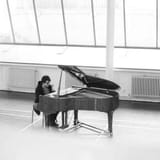Ronald Perlwitz on Music, Meaning, and Abu Dhabi’s Cultural Vision
Ronald Perlwitz, Head of Music at the Department of Culture and Tourism – Abu Dhabi, shares his vision for fostering musical innovation rooted in tradition and shaping cultural exchange through performance, education, and policy.
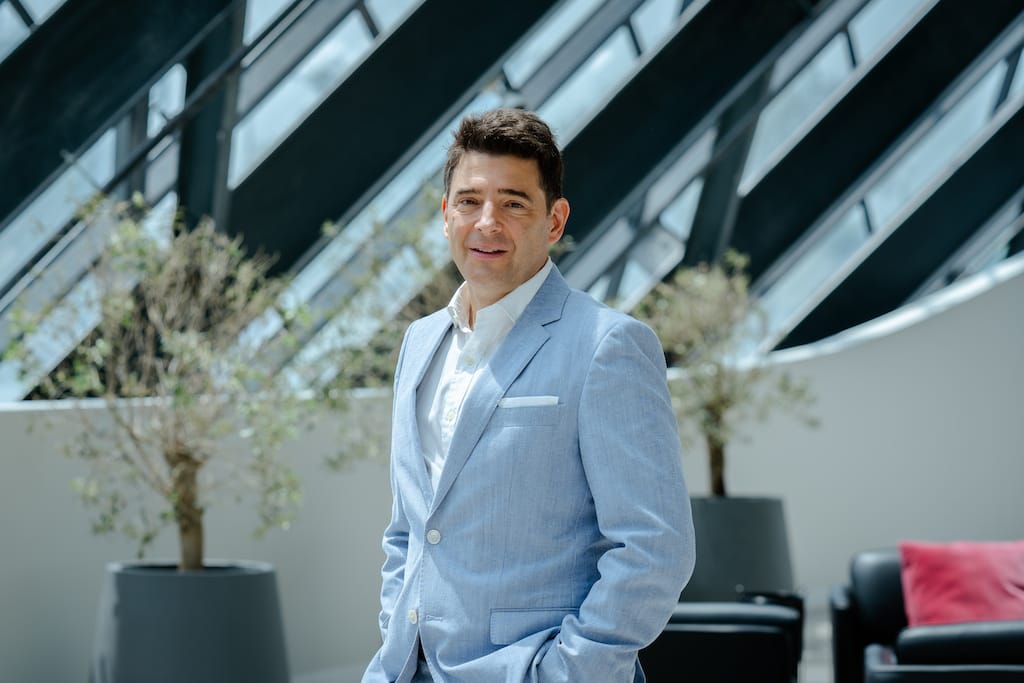
A rare polymath bridging the philosophical rigour of German Romanticism with the contemporary realities of the Gulf, Dr. Ronald Perlwitz has spent decades shaping both academic thoughts and cultural practices. A scholar of literature, music, aesthetics and business, he began his academic career in France, teaching at the University of Picardy and the Sorbonne in Paris.
In 2006, Perlwitz moved to the UAE to help establish Paris Sorbonne University Abu Dhabi. Since 2014, as Head of the Music Programme at Abu Dhabi’s Department of Culture and Tourism, he has curated some of the city’s most ambitious musical initiatives, including Abu Dhabi Classics, Bait Al Oud, Sounds of the UAE, and Umsiyat. His curatorial vision embraces both Western classical and regional traditions, always with an emphasis on depth, dialogue, and artistic excellence.
In this wide-ranging conversation, Perlwitz shares his thoughts on how Romantic philosophy continues to shape his work, why live performance matters in a digital age, and how Abu Dhabi is poised to become a 21st-century cultural crossroads. With clarity and conviction, he discusses the role of the arts in public life and the responsibilities of a new generation of cultural leaders.
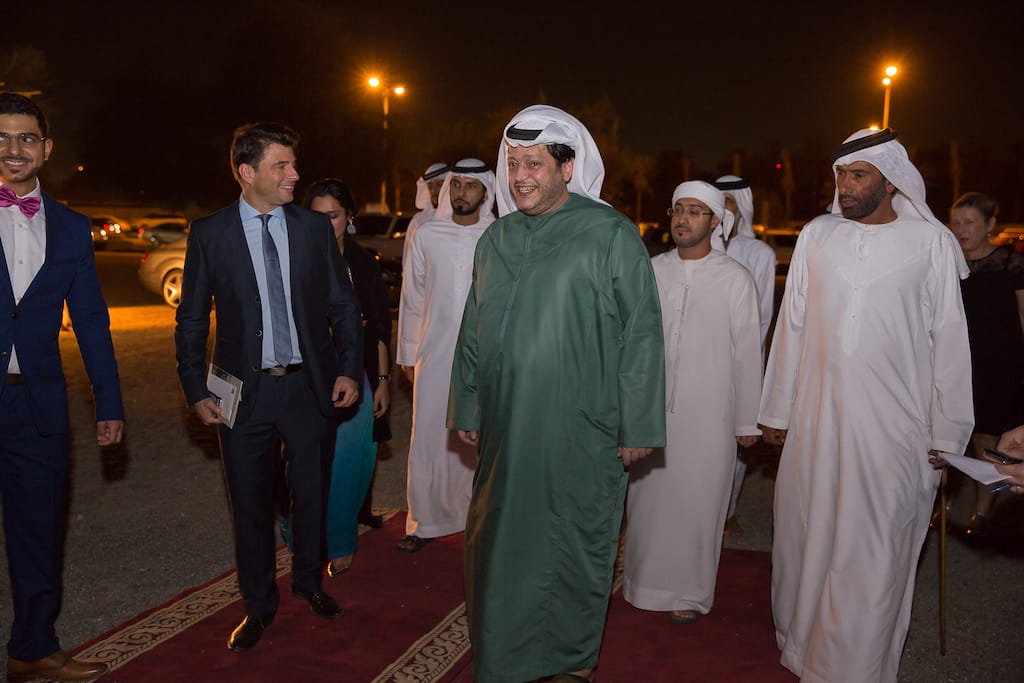
Nikhil Sardana: Your academic journey began with German Romanticism and the works of E.T.A. Hoffmann. How has your scholarly interest in literature and music informed your curatorial approach to programming in Abu Dhabi?
Ronald Perlwitz: Yes, I think about it every day. German Romanticism has always been part of my intellectual life. One of its key ideas is that it both continues and questions Enlightenment thinking. For example, Immanuel Kant saw reason as the highest human aim, guiding history in a linear, upward progression. The Romantics challenged this, suggesting that history is also cyclical, shaped by returns and repetitions.
They believed that true progress comes through engaging with other cultures. That’s why they were the first to translate Sanskrit and Arabic texts into German. Writers like the Schlegel brothers saw India as central to a deeper understanding of humanity. The Romantics rejected the Enlightenment's Eurocentric idea of reason as the only path forward, embracing instead a dialogue between civilizations.
Music, for them, was a universal language that existed before words. It was a way of accessing something eternal. In Abu Dhabi, I try to embody that spirit. By bringing together Western, Arabic, Asian and other classical traditions in our programmes, we create a space where different cultures meet as equals. It’s a very Romantic ideal.

NS: You’ve played a key role in shaping Abu Dhabi’s identity as a "City of Music." What has been the most rewarding challenge in building a classical music audience in the region?
RP: I don’t see challenges so much as opportunities. Abu Dhabi has always felt like a meeting point of cultures, which is why its recognition as a UNESCO Creative City of Music feels natural.
When I was 18 or 19, I travelled to Hadramaut in Yemen. There, I saw mosques influenced not by nearby regions, but by Indonesian and Indian architecture. That left a lasting impression on me — this idea that cultures here have long been shaped by global exchange.
Abu Dhabi reflects that same spirit. Influences from the Arab world, Asia, Africa, and Europe all come together here. So building a classical music audience isn’t about imposing something new. It’s about nurturing something that already exists. Even during the pandemic, we used the time to define and reshape our vision. Since then, the city's musical identity has only grown stronger.
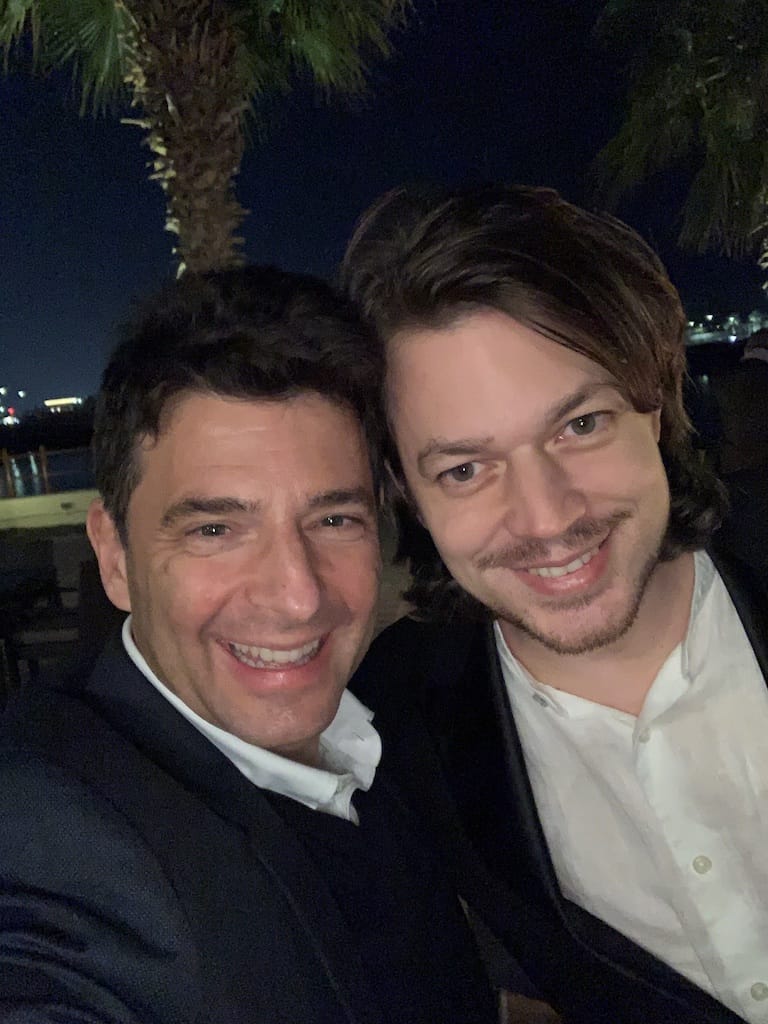
NS: Abu Dhabi Classics regularly features some of the world’s most celebrated orchestras and soloists. How do you balance international excellence with local musical heritage in your programming?
RP: We’ve always prioritised local music, but bringing world-class orchestras and soloists to Abu Dhabi is essential. Experiencing these artists live helps shape a rich musical landscape.
Great musicians aren’t celebrated by chance. Some have a singular ability to communicate emotionally through music. That’s what we look for — not just technical skill but real emotional depth, through which real connections were made between the artist and the audience.
Take Bach’s Goldberg Variations. It’s timeless, and not everyone can interpret it meaningfully. We seek out performers who can bring such works to life in ways that truly move the audience.
When we invited the Royal Concertgebouw Orchestra, they offered to change Mahler’s Ninth to something lighter. I insisted they perform Mahler. That’s exactly why we wanted them — they have a deep tradition with his music. The result was extraordinary. Many attendees had never been to a classical concert before, and yet it was one of the most powerful experiences of their lives: many were in tears that evening.
Our approach is simple: if you present Beethoven or Mahler, present them with the best interpreters. We choose artists not for their fame, but for their ability to offer something authentic and unforgettable.
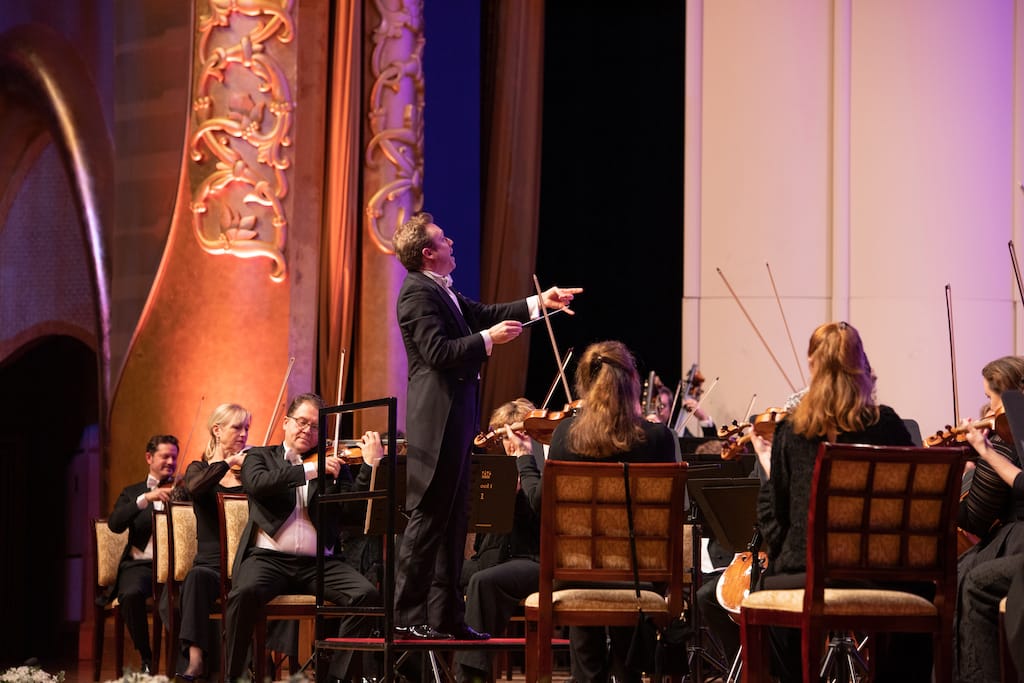

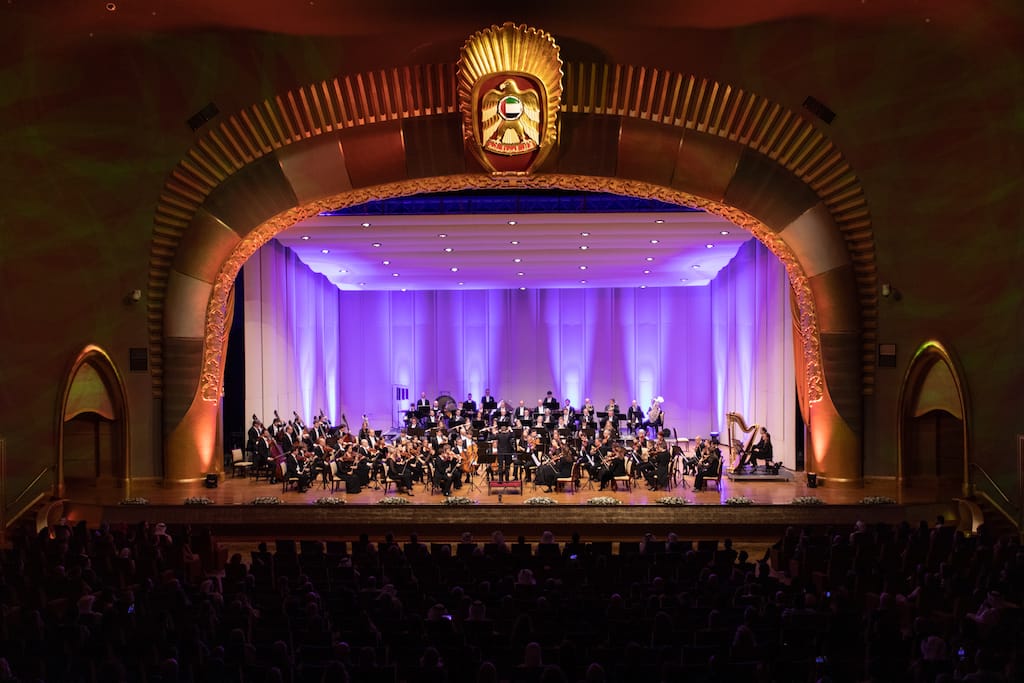
The Royal Concertgebouw Orchestra, conducted by Daniel Harding, made a landmark return to the region at Abu Dhabi Classics 2022 in the Emirates Palace Auditorium, with a powerful programme featuring R. van Veldhuizen’s "mais le corps taché d’ombres" and Mahler’s monumental Symphony No. 9.
NS: You’ve overseen a diverse portfolio of concert series, from Abu Dhabi Classics to Bait Al Oud and Umsiyat. How do these initiatives complement one another in serving a broader cultural vision?
RP: Our vision is to make Abu Dhabi a place where different musical traditions meet. In major cities like Paris or Berlin, you may hear excellent classical music, but rarely such a diverse mix within days — world-class orchestras, leading Arabic musicians, and powerful spiritual performances.
We want to show music as a universal art form, drawing from multiple traditions. Sometimes these connections are seamless, sometimes they are not, but trying matters. The NCPA in India, for example, is doing inspiring work by combining Western orchestras with Indian classical musicians. We're exploring similar ideas here.
We also focus on young musicians. When the Royal Philharmonic Orchestra came, they performed with our youth orchestra. That sort of collaboration is rare, even in Europe. It gives young performers here direct access to world-class mentorship.
At Bait Al Oud, we regularly involve students in performances and international exchanges. It’s all about sparking curiosity and offering them meaningful musical experiences early on.
As an result, we are now witnessing an emerging generation of artists—from various backgrounds—on the one hand achieving new levels of excellence in techniques, on the other hand creating new music inspired by the unique musical scene in Abu Dhabi.


Left: Ronald Perlwitz at the French Embassy in Abu Dhabi on 21 April 2022, receiving the Chevalier de l’Ordre des Arts et des Lettres medal in recognition of his significant contributions to culture and the arts; Right: with Emirati oud master Faisal Al Saari at the French Embassy during the medal ceremony.
NS: How do you see the role of access to music evolving in the digital age, and how does this affect your curatorial strategy?
RP: Music has never been more accessible. I come from the CD and vinyl era, when listening required effort and equipment. It was a ritual, something you valued. Today, you can stream anything in seconds. That’s convenient, but it often leads to everyone hearing the same commercial content, much of which lacks depth.
Our goal is to broaden what people are exposed to. Whether it's a Beethoven symphony or rare spiritual traditions, hearing it live has a completely different impact than listening online. With initiatives like Umsiyat, we present music that audiences might not otherwise encounter.
Access creates choice. Once people have experienced a range of music live, they can decide what truly speaks to them. That personal connection is where cultural understanding begins.

NS: You’ve also taught at leading institutions like the Sorbonne, University of Bayreuth, and the Accademia Teatro alla Scala. How do you see the role of education in supporting sustainable cultural ecosystems?
RP: Education is everything, and it matters even more as we enter the age of artificial intelligence. Today, you can search for anything and get instant answers. That can be helpful, but real understanding requires more than quick information. It needs interpretation, reflection, and human insight.
This is why the humanities are vital. When I teach literature or music, I’m not just helping students read or listen. I’m helping them understand meaning, context, and emotional depth. AI can’t do that. It doesn’t feel joy, pain, or empathy.
Take Mahler’s symphonies. They deal with life, death, and the human condition. A computer might compose music, but it lacks the soul behind the notes. That’s what I try to pass on to students — the value of insight and emotion. Education isn’t just about delivering content. It’s about helping people understand what it means to be human.
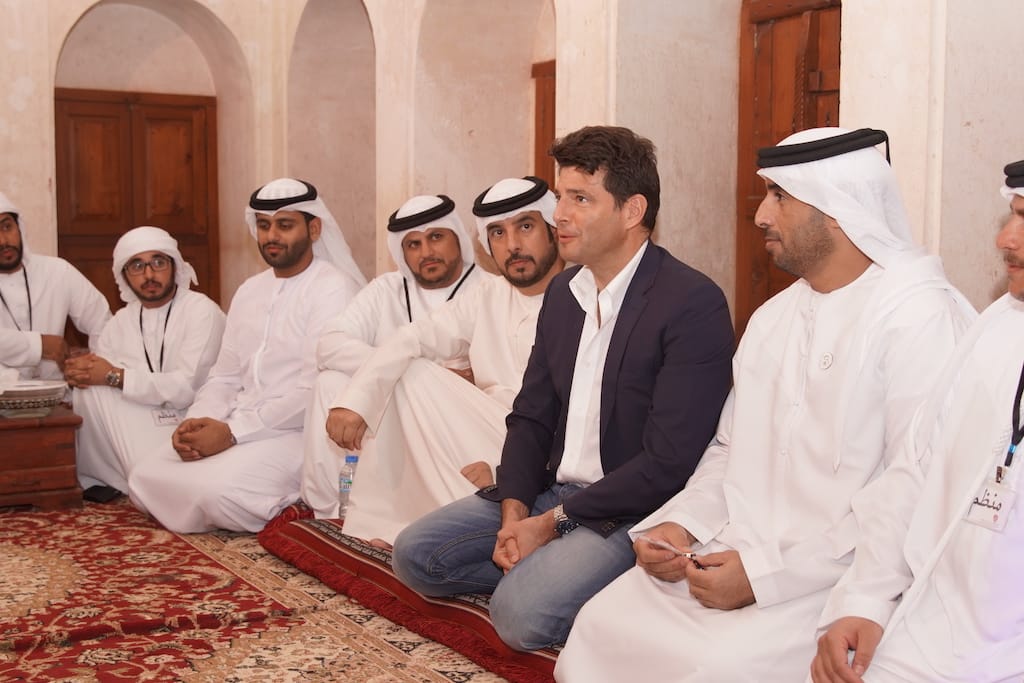
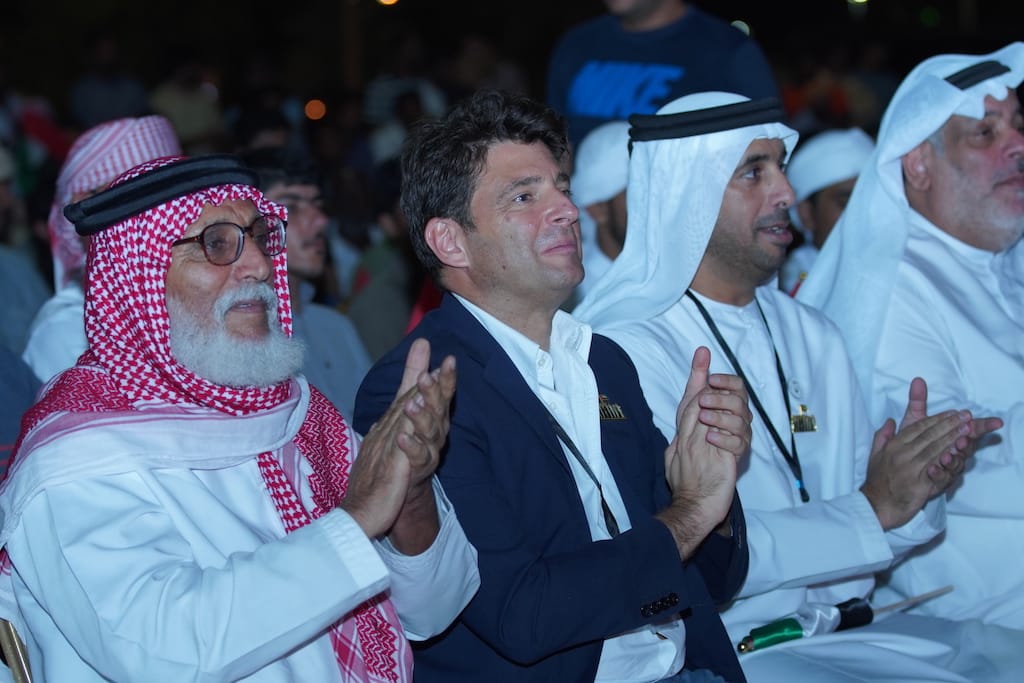
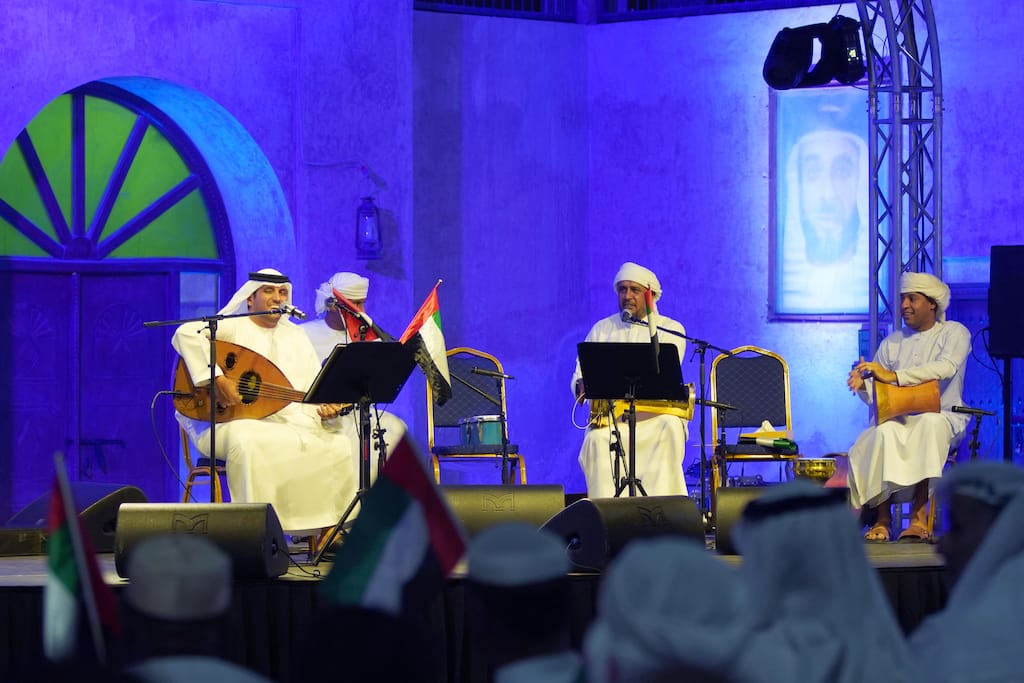
Ronald Perlwitz at a concert on Delma Island in 2021
NS: What role does opera play in the cultural dialogue between the Arab world and the West?
RP: Opera has real potential in the region. With venues like Dubai Opera and growing interest in the arts, it can become a powerful cultural bridge. The Arab world has a rich tradition of poetry, music, and storytelling, which aligns naturally with opera.
There’s already original work being written, but we’re only beginning. The goal isn’t to import European models, but to lay the groundwork for local creators to build something unique — something that reflects their own culture and voice. It’s not about imitation, but innovation.

NS: Looking ahead, what are your hopes for Abu Dhabi’s music scene in the next five to ten years?
RP: I hope to see a music scene grounded in knowledge and history, but open to new creation. Classical Arabic music, Western music, Indian and Chinese traditions — all should coexist. But more importantly, I’d love to see something original emerge from this region. A new Emirati musical form that draws on its heritage while embracing diverse influences. There’s a new generation of artists already moving in that direction, and our role is to support them, help them build a solid foundation, and encourage them to develop their own voices.
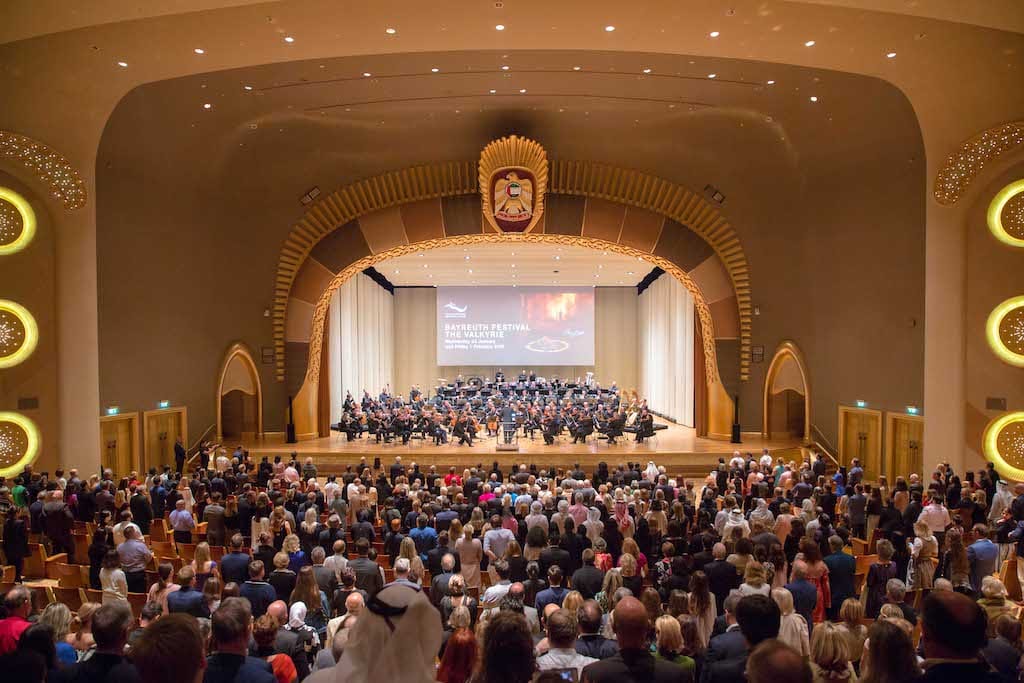
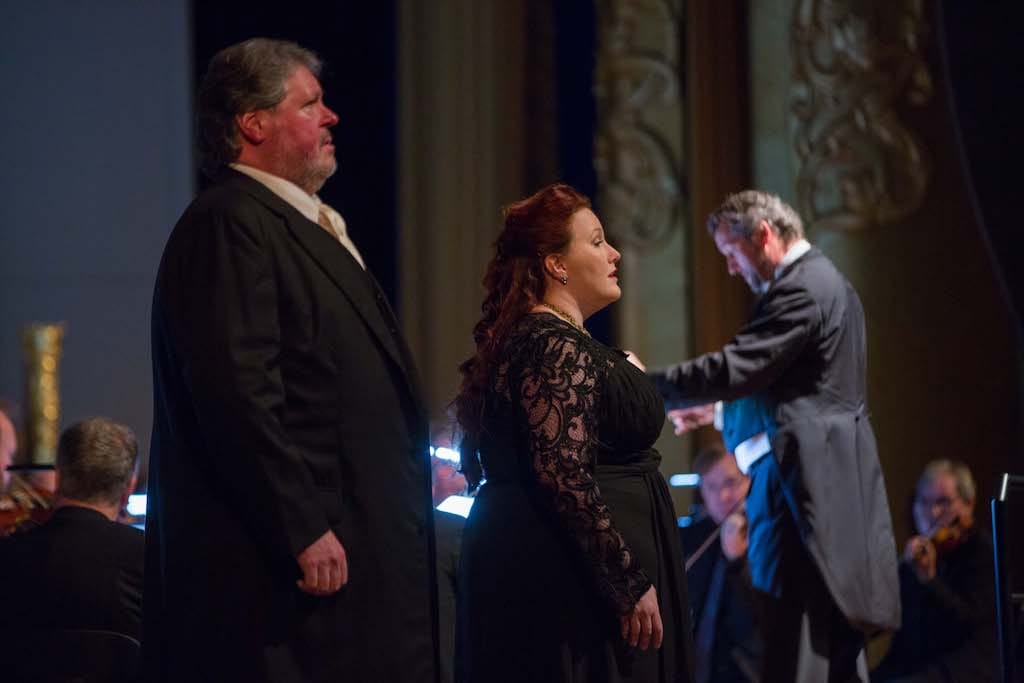
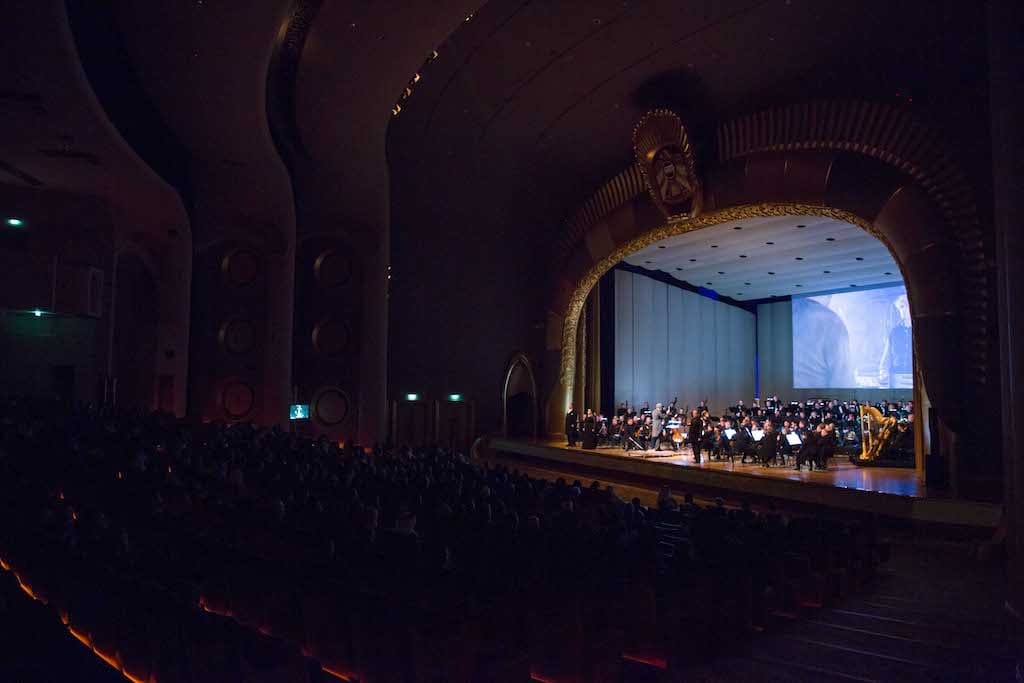
In a historic first outside Germany, the Bayreuth Festival brought Wagner’s Die Walküre to life at Abu Dhabi Classics 2019 with a semi-staged performance at Emirates Palace Auditorium, conducted by Markus Poschner and artistically directed by Katharina Wagner.
NS: Having lived and worked in Abu Dhabi since 2006, how have you seen the city’s cultural landscape evolve and what unique qualities does it now offer to artists and audiences alike?
RP: The transformation has been remarkable. New museums, universities, and cultural initiatives are constantly emerging. What stands out is the balance — there’s a strong commitment to progress, but also to preserving heritage. The younger generation is making the most of these opportunities, and there’s a rare combination here: openness to the world alongside deep respect for local traditions. That’s something I deeply admire.

NS: Your work sits at the crossroads of scholarship, performance, and policy. What advice would you offer to young cultural leaders hoping to make a meaningful impact in today’s global arts environment?
RP: Stay connected to your roots, but always be open to questioning yourself. Real growth comes through discipline, curiosity, and deep reflection, not shortcuts. Read, listen, and think critically. The things you value at 15 will likely change by the time you're 40. Embrace that evolution. A quick concert might entertain, but a long opera offers something deeper. Commit to that kind of experience. If you want to make a lasting impact, invest time and effort. That is the real work and joy of being in the arts today.

